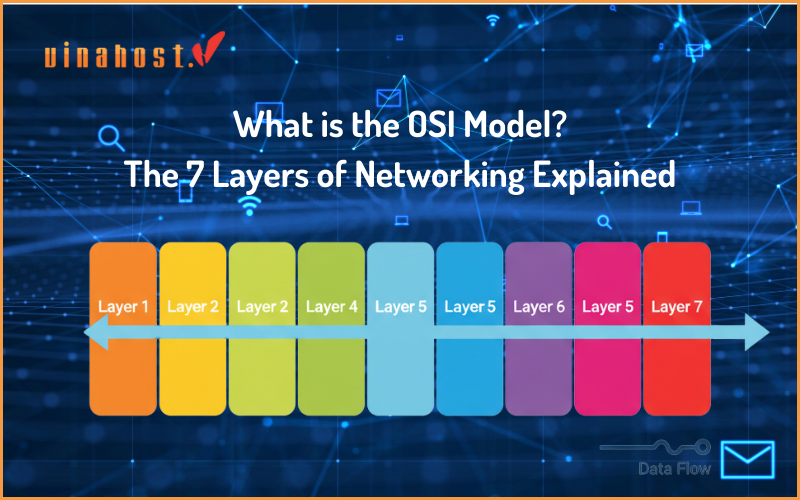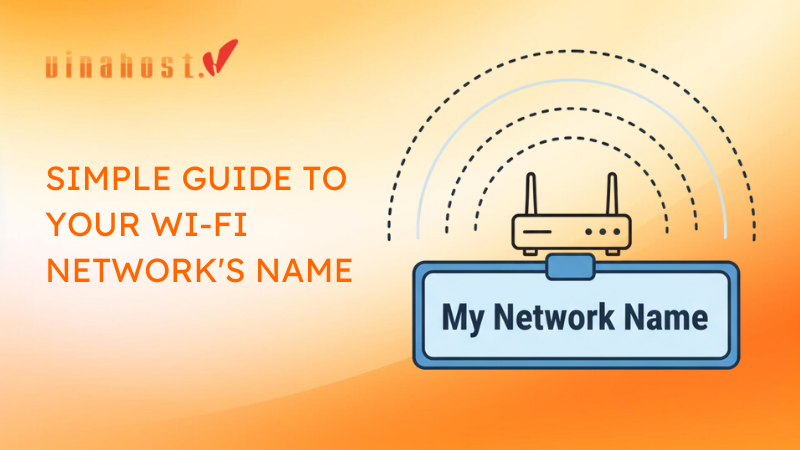Two prominent hosting options that often emerge in discussions are Cloud Server and VPS. While they may appear similar at first glance, each offers distinct features, advantages, and use cases that cater to different needs. Choosing between them involves assessing factors like performance requirements, budget, scalability and technical expertise. This VinaHost‘s article show you the core differences between these two hosting solutions, exploring their respective architectures, benefits, and ideal use scenarios. By the end, we hope you have a clearer understanding of which option aligns best with your specific requirements!
1. Oview of Cloud Server
1.1. What is Cloud Server
A cloud server is known as a virtual server that operates in a cloud computing environment. It is built, hosted, and delivered via a cloud computing platform over the internet and can be accessed remotely. Cloud servers have similar capabilities and functions as traditional physical servers but are virtualized, offering several advantages in terms of flexibility, scalability, and cost-efficiency.
Cloud servers are a good option for businesses and individuals who need a reliable and scalable computing platform without the hassle of managing physical hardware.
Also Read: What is a Cloud Server? | How does a Cloud Server work?
1.2. How does Cloud Server work?

Physical infrastructure:
- At the core lies a massive network of physical servers housed in secure data centers owned and maintained by cloud service providers (CSPs) like Amazon Web Services (AWS), Microsoft Azure, or Google Cloud Platform (GCP).
- These cloud providers maintain large-scale data centers equipped with numerous physical servers, networking hardware, and storage systems. These data centers are distributed globally to ensure high availability and low latency.
- Data centers are designed with redundancy for critical components, such as power supplies, network connections, and storage systems. This makes sure continuous operation as well as minimal downtime.
Virtualization:
- Cloud servers rely on a hypervisor (such as VMware, Hyper-V, or KVM) to virtualize physical servers. The hypervisor will create and manages multi-virtual machines on a single dedicated server.
- Each virtual machine runs as an independent server with its own dedicated applications, IP address, OS and resources like RAM, SSD, CPU,…
Cloud server creation:
- When you request a cloud server from a CSP, they use the hypervisor to create a VM tailored to your specifications. You can choose the amount of processing power (CPU cores), memory (RAM), storage space, and operating system you need.
- Cloud providers usually offer automation tools and templates to quickly deploy servers and applications, reducing the time and effort required for setup.
Resource allocation:
- Cloud servers will dynamically allocate their resources based your need. Users can scale up (add more resources) or scale down (reduce resources) as needed without physical hardware changes.
- Physical resources are pooled together and allocated to virtual servers based on user requirements. This efficient utilization of resources helps in cost savings and flexibility.
Network connectivity:
- Cloud servers are connected through virtual networks, enabling communication between servers, load balancers, and other network devices within the cloud environment.
- The cloud server resides within the CSP’s data center network, ensuring high-speed internet connectivity. You can access your cloud server remotely using a secure connection provided by the CSP.
Management and security:
- CSPs manage the underlying physical infrastructure and hypervisor. You, as the user, have control over your cloud server through a web interface or API offered by the CSP. This interface allows you to manage your VM, install software, configure security settings, and access your data.
- Network security features, such as firewalls, VPNs, and private subnets, are implemented to protect data and control access.
Storage:
- Cloud storage solutions, such as block storage, object storage, and file storage, provide flexible and scalable storage options. Data can be stored and accessed independently of the server’s lifecycle.
- Data is often replicated across multiple locations to ensure durability and availability.
1.3. Pros of using a Cloud Server

- Scalability and elasticity: This is a major advantage. You can easily scale your cloud server’s resources (CPU, memory, storage) up or down as your needs fluctuate. Need more processing power for a seasonal rush? No problem, just increase your resources. This allows you to optimize costs and avoid paying for unused capacity.
- Cost-effective: Cloud servers eliminate the upfront cost of buying and maintaining physical servers. You only pay for the resources you use, making it a good option for businesses with fluctuating needs or those starting out.
- Increased uptime and reliability: Cloud providers offer high availability and disaster recovery features. Their data centers are geographically distributed and often have redundant systems in place to minimize downtime in case of hardware failure. This ensures your server stays online and accessible.
- Improved flexibility: You can access your cloud server from anywhere with an internet connection. This allows for remote workforces and easier collaboration. Plus, there’s no need to be physically present at the server location for maintenance or upgrades.
- Automatic updates and maintenance: Cloud providers handle server updates and maintenance, freeing you from these tasks and ensuring your server runs on the latest software with security patches applied.
- Security features: Cloud providers offer a range of security features like firewalls, access controls, and encryption to protect your data. Additionally, their data centers typically have robust physical security measures.
1.4. Cons of using a Cloud Server
While cloud server have advantages, it also presents challenges such as dependency on internet connectivity, security and privacy concerns, compliance issues, and potential cost management difficulties:
- Provider dependence: Once you migrate your data and applications to a cloud server platform, it can be complex and expensive to switch to another provider.
- Reliance on Internet connectivity: Cloud servers depend on a reliable internet connection. Any internet outages will disrupt your server’s accessibility.
- Potential security concerns: While cloud providers offer security features, storing sensitive data on someone else’s infrastructure can be a concern for some users. It s important to choose a reputable cloud provider with strong security practices and understand their data security policies.
- Limited control: You don’t have the same level of physical control over a cloud server as you do with an on-premise server. This might be a concern for users with very specific hardware or software requirements.
- Cost unpredictability: While generally cost-effective, cloud server costs can become unpredictable if your resource usage fluctuates significantly or you underestimate your needs.
2. Oview of VPS Hosting
2.1. What is VPS Hosting
VPS hosting (Virtual Private Server hosting) is a type of hosting service where a dedicated server is divided into multi-virtual servers by using virtualization technology.
Put simply, VPS hosting creates a virtualized environment within a physical server. Imagine a physical server being divided into multiple virtual apartments, each with its own set of resources (CPU, memory, storage, operating system). You essentially get a private section with guaranteed resources, offering more control and stability than shared hosting.
We can see that VPS hosting provides a good balance of price, performance, and control, making it suitable for websites that have outgrown shared hosting but don’t require the full resources of a dedicated server.

2.2. How does VPS Hosting work?
Each VPS operates independently with its own dedicated resources like CPU, RAM, storage, and operating system, providing users with a level of control and performance similar to a dedicated server but at a lower cost.
In essence, VPS hosting offers a virtualized server experience within a shared physical server.
Let’s see how it works:
- Physical server: At the core lies a physical server with powerful processing power, memory, and storage space. This server is owned and maintained by the VPS hosting provider.
- Virtualization layer: A software program called a hypervisor sits on top of the physical server’s operating system. This hypervisor acts like a conductor, dividing the server’s resources (CPU cores, memory, storage) into isolated compartments.
- Creation of VPS instances: When you purchase a VPS hosting plan, the provider creates a virtual machine (VM) for you within the physical server using the hypervisor. This VM acts as your virtual private server.
- Allocated resources: Each VPS instance gets a dedicated set of resources like CPU cores, memory, and storage. Unlike shared hosting, you don’t share these resources with other users, ensuring consistent performance for your website.
- Operating system: Each VPS runs its own operating system, which can be different from the host OS or other VPS instances on the same server. Users can choose their preferred OS (e.g., Linux, Windows) based on their requirements.
- Custom software: Users have full control over their VPS environment, allowing them to install and configure any software or applications they need, just as they would on a dedicated server.
- Root access: Users are typically given root or administrative access to their VPS, enabling complete control over the server settings and configurations.
- Control Panels: Many VPS hosting providers offer control panels (like cPanel, Plesk) to simplify server management, making it easier to manage websites, databases, and email accounts.
- Network connectivity: Each VPS instance is assigned a unique IP address, allowing it to be accessed independently on the internet. You can manage your VPS remotely through a web interface or command-line tools provided by the hosting provider.
2.3. Pros of using a VPS Hosting

- Enhanced performance: Compared to shared hosting, VPS hosting offers significant performance improvements. Since you have a dedicated set of resources (CPU, memory, storage), your website won’t be affected by resource spikes from other websites sharing the server. This translates to faster web load times and a better user experience for your users.
- Increased control and security: With VPS hosting, you have root access to your virtual server. This allows you to install any software you need, customize configurations, and manage security settings more effectively than with shared hosting. You also benefit from improved isolation from other users, reducing security risks.
- Scalability: VPS hosting offers built-in scalability. If your website’s traffic or resource requirements increase, you can easily upgrade your VPS plan to get more CPU cores, memory, or storage. This allows you to grow your website without needing to migrate to a completely new server.
- Cost-Effective: VPS hosting falls between shared and dedicated hosting in terms of cost. It is significantly more affordable than a dedicated server but offers more power and control than shared hosting, making it a good value proposition for growing websites.
Refer to the VinaHost VPS pricing:
2.4. Cons of using a VPS Hosting
However, it is essential to consider the increased management responsibility and potential security concerns before opting for VPS:
- Increased management complexity: Compared to shared hosting, VPS hosting requires more technical knowledge for management. You’ll be responsible for tasks like installing software, configuring security settings, and keeping your server updated.
- Limited scalability: While offering some scalability, VPS plans typically have predefined resource limits. If your website experiences unexpected surges in traffic that exceed your plan’s capacity, you might need to migrate to a dedicated server, which can be a more complex process.
- Potential security concerns: Having root access also means greater responsibility for server security. If you are not comfortable managing server security or lack the technical expertise, VPS hosting might introduce security risks.
- Not Ideal for basic websites: If you have a simple website with low traffic, a VPS might be overkill. Shared hosting can be a more cost-effective solution for basic websites with minimal resource requirements.
Also read: What is SSD VPS Hosting? | Everything You Need to Know
3. What is the difference between cloud server and VPS

3.1. Cost
- Cloud Server: Cloud servers can be more cost-effective in the long run, especially for fluctuating workloads. You only pay for the resources you use, with the ability to scale up or down easily. However, upfront costs might be slightly higher.
- VPS Hosting: VPS hosting typically has fixed monthly costs based on the chosen plan with a predetermined amount of resources. This can be predictable but may not be ideal if your resource needs vary.
You can refer to VinaHost VSP and Cloud server pricing belows:
PRO VPS SSD VIETNAM or CHEAP VPS VIETNAM
| Service Pack | ProSSD Start | ProSSD 1 | ProSSD 2 | ProSSD 3 | ProSSD 4 | ProSSD 5 | ProSSD 6 |
|---|---|---|---|---|---|---|---|
| Price | 4.89 USD/Month | 5.31 USD/Month | 11.48 USD/Month | 13.39 USD/Month | 19.13 USD/Month | 27.63 USD/Month | 37.83 USD/Month |
| vCPU | 1 | 1 | 2 | 3 | 4 | 6 | 8 |
| RAM | 512 MB | 1 GB | 2 GB | 3 GB | 4 GB | 6 GB | 8 GB |
| SSD | 12 GB | 25 GB | 50 GB | 50 GB | 60 GB | 80 GB | 100 GB |
| Minimum Payment | 3 months | 3 months | 1 month | 1 month | 1 month | 1 month | 1 month |
| IOPS | 42k/14k | 42k/14k | 42k/14k | 42k/14k | 42k/14k | 42k/14k | 42k/14k |
| Virtualization Technology | KVM | KVM | KVM | KVM | KVM | KVM | KVM |
| Weekly Data Backup | Free | Free | Free | Free | Free | Free | Free |
| DirectAdmin | Free | Free | Free | Free | Free | Free | Free |
| Data Transmission Traffic | Unlimited | Unlimited | Unlimited | Unlimited | Unlimited | Unlimited | Unlimited |
| IPv6 support | |||||||
| Free SSL | |||||||
| Automatic Activation | |||||||
| Virtualizor | |||||||
| Service Pack | Cloud 1G | Cloud 1.5G | Cloud 2G | Cloud 4G | Cloud 8G | Cloud 16G |
|---|---|---|---|---|---|---|
| Price | 8.00 USD/Month | 14.75 USD/Month | 28.75 USD/Month | 49.75 USD/Month | 87.50 USD/Month | 160.00 USD/Month |
| Price | 8.00 USD/Month | 14.75 USD/Month | 28.75 USD/Month | 49.75 USD/Month | 87.50 USD/Month | 160.00 USD/Month |
| RAM | 1 GB + [FREE 1 GB] | 1.5 GB + [FREE 1 GB] | 2 GB + [FREE 2 GB] | 4 GB + [FREE 2 GB] | 8 GB + [FREE 3 GB] | 16 GB + [FREE 3 GB] |
| Storage | 12 GB | 20 GB | 40 GB | 60 GB | 80 GB | 100 GB |
| vCPU | 1 | 1 | 2 | 2 | 4 | 8 |
| Minimum Payment | 3 months | 1 month | 1 month | 1 month | 1 month | 1 month |
| Data Transfer | Unlimited | Unlimited | Unlimited | Unlimited | Unlimited | Unlimited |
| Virtualization Technology | KVM | KVM | KVM | KVM | KVM | KVM |
| Weekly Backup | Free | Free | Free | Free | Free | Free |
| DirectAdmin | Free | Free | Free | Free | Free | Free |
| IPv6 | ||||||
| Anti DDoS | ||||||
| Free SSL | ||||||
3.2. Flexibility
- Cloud Server: Cost is one of the key difference between VPS and cloud server. Cloud servers offer unmatched flexibility. You can scale resources (CPU, memory, storage) on-demand in minutes, adapting to changing needs. Additionally, cloud providers offer various server configurations and software options.
- VPS Hosting: VPS hosting provides some flexibility. You can usually upgrade to a higher VPS plan with more resources if needed, but this process might involve downtime and may not always be suitable for sudden spikes. Software options are typically limited to what the provider allows on their VPS platform.
3.3. Performance
- Cloud Server: Cloud servers can potentially deliver higher performance because they leverage a vast pool of resources. In case of hardware failure, cloud providers can quickly migrate your server to another physical machine, minimizing downtime.
- VPS Hosting: VPS performance depends on the allocated resources within the physical server. If other VPS users on the same server experience spikes in traffic, it can impact your performance. Additionally, hardware limitations of the physical server can restrict performance upgrades.
3.4. Scalability
- Cloud Server: Cloud servers excel in scalability. You can easily scale resources up or down in real-time to meet fluctuating demands. This makes them ideal for applications with unpredictable traffic patterns or those experiencing rapid growth.
- VPS Hosting: VPS hosting offers some scalability, but it is not as seamless as cloud servers. Upgrading a VPS plan often involves migrating to a different server, which can be disruptive. Additionally, scaling limitations exist due to the finite resources of the physical server.
3.5. Security
- Cloud Server: Cloud providers invest heavily in security measures to protect their data centers and infrastructure. However, the shared responsibility model applies – you are responsible for securing your virtual server itself (operating system, applications, data).
- VPS Hosting: The level of security in VPS hosting depends on the provider. Some offer robust security features, but you’ll still be responsible for server hardening and ongoing security maintenance.
3.6. Resource allocation
- Cloud Server: Resource allocation is one of the difference VPS and cloud server. Cloud servers provide virtualized resources from a large pool. These resources are not tied to a specific physical server and can be dynamically allocated based on your needs.
- VPS Hosting: VPS hosting allocates a fixed set of resources (CPU, memory, storage) from a single physical server. These resources are dedicated to your VPS but are not dynamically scalable.
Also read: What is the difference between VPS and Shared Hosting
4. How to choose Between Cloud server and VPS

Use cases for VPS:
- Small to medium-sized websites: Ideal for personal blogs, small business sites, and portfolio sites that require moderate traffic and resource usage. VPS provides sufficient performance and control without the high cost of dedicated servers.
- E-commerce sites: Small to mid-sized online stores can benefit from the dedicated resources and enhanced security of a VPS, ensuring stable performance during peak shopping periods.
- Development and testing environments: Developers can use VPS for staging environments to test applications and updates before deploying them to production. The control and isolation provided by a VPS are ideal for this purpose.
- Custom software applications: Businesses running specific applications that require custom configurations and dedicated resources can benefit from the control and flexibility of a VPS.
- Managed hosting needs: For users who prefer managed services, a VPS can provide the control and performance needed without requiring extensive technical knowledge, as many providers offer managed VPS options.
Use cases for VPS:
- High traffic websites and applications: Large-scale websites, news sites, and media-heavy sites that experience high traffic volumes and need to scale resources quickly and efficiently can benefit from cloud servers.
- Enterprise applications: Businesses running enterprise-level applications such as ERP, CRM, and big data analytics can leverage the scalability, high availability, and redundancy of cloud servers.
- E-commerce sites with variable traffic: Large online stores or those expecting variable traffic (e.g., during sales events) can use cloud servers to handle traffic spikes without performance issues.
- Startups and growing businesses: Startups looking to scale rapidly as their customer base grows can benefit from the flexible, pay-as-you-go model of cloud servers, which allows them to scale resources as needed without upfront investments.
- Global applications: Applications with a global user base can use cloud servers to deploy resources in multiple geographic locations, reducing latency and improving user experience.
- Disaster recovery and backup solutions: Businesses needing robust disaster recovery and backup solutions can benefit from the redundancy and geographic distribution of cloud servers.
Also read: What is the difference between VPS and Dedicated Server?
5. FAQs
5.1. Can I switch between Cloud server and VPS later?
Yes, in many cases, you can switch between cloud server and VPS later, but there will be some effort involved.
Most cloud providers and VPS hosting providers offer migration services or tools to help you move your website or application from one platform to the other. There might be associated fees for these services.
Migrating to a new platform usually requires some technical knowledge. You might need to be familiar with transferring website files, databases, and potentially reconfiguring some settings.
Howerver, there’s a possibility of experiencing some downtime during the migration process, although providers strive to minimize this. Therefore, you need to make sure to choose a migration window with minimal impact on your website visitors.
Besides, migration services might incur additional costs. You should factor this in when making the decision to switch.
Last but not least: Cloud servers offer more control and flexibility but come with a steeper learning curve compared to VPS hosting. If you are migrating to a cloud server, be prepared to invest some time in learning how to manage it effectively.
While the specific process will vary depending on your providers (both cloud server and VPS), here’s a general roadmap to help you switch between cloud server and VPS:
Switching between a cloud server and VPS requires careful planning, thorough testing, and proper execution to ensure a smooth transition. By following these steps and leveraging available resources, you can successfully migrate your hosting environment to meet your evolving needs:
- Assess your needs and choose the right cloud server plan.
- Back up your data from the VPS.
- Set up the new cloud server with necessary configurations.
- Migrate your data to the cloud server.
- Test everything thoroughly on the new server.
- Update DNS settings to point to the cloud server.
- Monitor performance and fine-tune configurations.
- Decommission the old VPS once everything is confirmed to work smoothly.
If you are unsure about manual migration, consider using your Cloud Provider’s assisted migration services or consult a system administrator for assistance.
5.2. Can I get help migrating to a VPS or cloud server?

- Easier and faster migration process, especially for non-technical users.
- Reduced risk of errors during migration.
- Some providers might offer it for free or at a minimal cost.
Besides, you can seek assistance from technical experts or professional service providers who specialize in server migrations:
- Managed service providers: Consider hiring a managed service provider (MSP) or consulting firm that specializes in server migrations. These professionals can handle the entire migration process for you, from planning and preparation to execution and post-migration support.
- Freelancers and consultants: You can also hire freelance system administrators or consultants with experience in server migrations. Platforms like Upwork, Freelancer, or specialized IT consulting firms can connect you with skilled professionals who can assist with your migration project.
- Online communities and forums: Communities like Stack Overflow or dedicated forums for your chosen VPS provider or CSP can be valuable sources of guidance and troubleshooting assistance.
- Online resources and guides: There are numerous online resources, tutorials, and step-by-step guides available that can help you migrate to a VPS or cloud server. If you prefer a do-it-yourself approach, these resources can provide valuable guidance throughout the migration process.
Also read: What is Linux VPS? | Choosing the Right Linux VPS Provider
6. Conclusion
Understanding the differences between cloud server and VPS is essential for you to make informed decisions about web hosting and server management. Both options offer unique advantages tailored to varying needs, and recognizing these distinctions can significantly impact performance, scalability, and cost-efficiency.
Cloud Servers offer unparalleled flexibility and reliability for businesses with dynamic, high-traffic environments, whereas VPS provides a more controlled, cost-efficient solution for those needing dedicated resources and customization. By carefully evaluating these aspects, we hop that your businesses can select the hosting solution that best aligns with your operational goals and technical demands.
Find out more articles at our Blog and don’t hesitate to contact us for support:
- Email: support@vinahost.vn
- Hotline: 1900 6046
- Livechat: https://livechat.vinahost.vn/chat.php
>>> Read more:
What is GPU VPS? | Choosing the Right GPU VPS Provider
What is gaming VPS? | Choosing the Right gaming VPS Provider
 Tiếng Việt
Tiếng Việt English
English 简体中文
简体中文






























































































